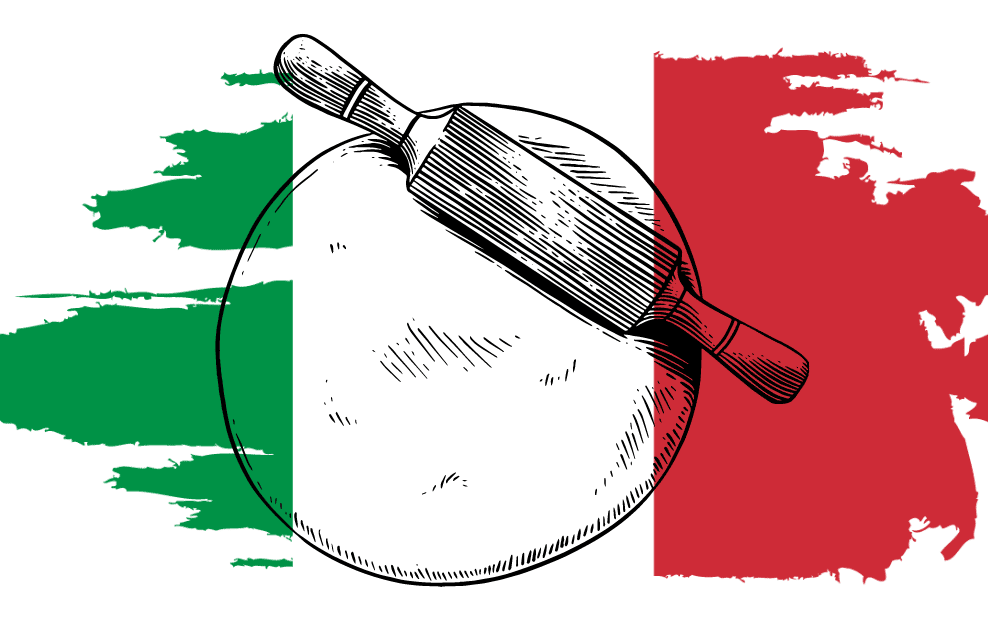No products in the cart.
How A Chinese Almond Cookie Sparked A Friendship
A half-eaten eggroll and a few bites of chow mein were left on my plate across from Nina’s untouched food. She hadn’t even looked at the Chinese almond cookies, heaped up like golden coins on a decorative paper dessert plate. Instead, her dark eyes stared at the table, occasionally lifting them to silently plead with the interpreter to take her home.
Our class prepared for weeks to give her a warm welcome. We read The Year of the Boar and Jackie Robinson, learned about our birth year on the Chinese zodiac, and watched documentaries about Chinese culture in anticipation of her arrival.
The day Nina came to our class was the week of Chinese New Year. That morning our class transformed into a red and gold wonderland. Scarlet banners emblazoned with gold Chinese characters lined the walls while dragon and coin decorations hung from the ceiling. We threw her a party to celebrate both new beginnings as authentically as a group of Americans could.
Thirty students erupted into an earsplitting greeting as she walked through the door. Nina’s interpreter put a hand on her shoulder, offering encouragement as she cautiously led her to her seat in the back of the room.
THE CHINESE ALMOND COOKIES ARE IMPORTANT
We had spent weeks learning about Nina’s culture, but she did not look like a foreigner other than her facial features. Maybe such intense preparation exoticized her more than it should have. After all, she didn’t walk in with a Qipao or a dragon suit. She came in with black pants and a simple tee shirt. She was quiet, reserved, and surprisingly just like us.
Sharing a meal was how we would bond with our new classmate. Our teacher prepared a banquet table filled with food from a local restaurant. Egg rolls, fried noodles, and chicken dishes were surrounded by piles of oranges, fortune cookies, and Chinese almond cookies for dessert.
“The almond cookies are important,” the teacher said. She explained how coin-shaped cookies were a staple in Chinese New Year celebrations. They represented good fortune and prosperity for the coming year.
“We all want Nina to have a good year with us, right?” She asked. Thirty heads bobbled as we dug forks into our noodles while Nina watched. She didn’t bother to lift her chopsticks.
“Why won’t she eat?” I heard the teacher ask the interpreter.
“She says it’s not real Chinese food,” the interpreter replied. “None of it.”
“That’s all we have,” she whispered back.
My friends and I bombarded her with questions between mouthfulls of food. The first few she answered as best as she could. Her patience wore thin and she eventually stopped answering. My friends, bored by her silence, went off to other tables in search for something more entertaining.
A TASTE OF TWO CULTURES
For a few minutes, I sat there trying to find something to say while our classmates chattered together loudly. The heaps of Chinese almond cookies on the table gave off a warm and comforting scent that seemed to overpower the coldness that lingered between us.
The sweet aromatic scent of sugared almond tickled my nose as its crispy, golden edges crumbled under my fingers. Its nutty richness from the toasted almonds and buttery crumbs brought back happy memories of being in the kitchen with my mom during the holidays.
It was my first time ever tasting a Chinese almond cookie. Being Italian-American, I thought we owned all the patents on almond cookies. Every year my mother would faithfully bake dozens of cookies for the holidays and give them as gifts to our friends and neighbors. They always included every almond cookie I had ever heard of. But Nina’s almond cookie was one I had never tasted before. While it was familiar to the ones we made at home, it was delicious in its own unique way.
Cookies were a symbol of history and family in my home. They were a sense of pride that reminded us no matter how far away we are in distance or time, a cookie brings home to us when we crave it the most. Looking at Nina’s dark eyes staring at the table, I knew that if she was hungry for anything, it was for her home in Taiwan. The interpreter said nothing of our spread was authentically Chinese. Maybe the cookies weren’t either, but I’ve never known someone to feel sad after eating something sweet.
“My mom makes something like these,” I whispered and slid a cookie her way. “The ones we make are good. These are good, too. Do you make them?”
Her dark eyes studied me and the cookie for a moment. In silent curiosity, her slim fingers lifted the cookie and she took the slightest bite. For only an instant a glimmer of light shone through the cookie’s glossy coat and crumbling edges. Then just as quickly, the cookie was laid down and Nina retreated once more behind her curtain of silence. She said nothing more until her interpreter asked if she was ready to leave.
The teacher brought her a takeaway box to put in her leftovers. Her eyes briefly looked at me as she grabbed her cookie and carefully placed it in the box. Without a goodbye, she left the room as quietly as she came in. Weeks of anticipation fizzled to nothing as the girl from Taiwan who didn’t talk left the room as lonely as she walked in.
THE HIGH PRICE OF FITTING IN
The following day she arrived in class and there was no fanfare or party to greet her. There were no ni haos or more than a curious eyeball her way. She came in quietly and took the seat next to mine. I greeted her with a smile and let her have her space.
We sat together for the rest of the year. Every chance I got, I peppered her with questions about her life and interests hoping to find some common ground. When she stopped answering my questions, I stopped asking until the next day.
One day she told me that her name wasn’t really Nina. Her birth name was Léi, but Nina was an Americanized name she chose in Taiwan to help her fit in when she came to America.
I must have begged her a dozen times to give me a Chinese name, to which each time she vehemently refused. She said that she didn’t want an American name, she wanted to use her own name. But that’s not how it worked in America.
In my childish naivety, I didn’t comprehend Nina’s immense sacrifice in coming to America. It was more than just a name change–it was sacrificing a portion of her identity for something new. The courage it must have taken for someone so young to leap into the unknown, surrounded by a world that in many ways refused to accept her just as she was. I couldn’t fathom the crushing isolation she endured, muted by an unfamiliar language and then plopped into a foreign culture so unlike her own.
What I did know was that Nina was a girl who knew no one and (maybe?) wanted someone to accept her. Not just as her as Americanized “Nina,” but as Léi, too. I wanted to teach her that she had a place here in America and that we just wanted the chance to get to know her. That while America wasn’t Taiwan, maybe she could find a place for us in her heart, too.
Instead, she ended up teaching me many wonderful things that I still cherish to this day. She taught me how to fold paper stars and write my name in Chinese. I still have it written in an old notebook. She helped me with hard math homework and taught me a few words in her native tongue.
But most importantly, she taught me that food can sometimes say what words can’t always express. Something as simple as a Chinese almond cookie can break ground and bridge gaps.
SHARING A COMMON THREAD
Léi wasn’t so different. She was a kid who had Taiwanese friends and liked to play just like us American kids. She had a family, hopes, and dreams just like we did. She had holidays that she celebrated and foods she liked to eat on those holidays.
Among all the intricacies that made us different, Léi and I always shared a common bond over a simple cookie. That was one thing that Léi and I didn’t need language to be able to understand one another. I held onto that bond for the rest of the school year as I tried my best to make her feel as comfortable as possible in her new home.
The following year, we only had the same math class with assigned seats across the room from one another. And while we didn’t have the chance to talk much, on Fridays when we had pair work, Nina smiled when I asked her if we could work together.
Maybe a bite of an almond cookie didn’t mean anything to Nina. Maybe it didn’t mean anything to Léi, either. But for me, it changed my perspective to realize that if we have one thing in common, we might have other things in common, too. That idea is what gave me the courage and the persistence to push through the cultural barriers and discover Léi–the real Nina.
And for that, a Chinese almond cookie will now bring back two happy memories. There are the ones I shared baking almond cookies with my mom and the one where I made my first friend from Taiwan.






